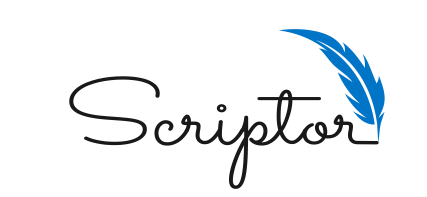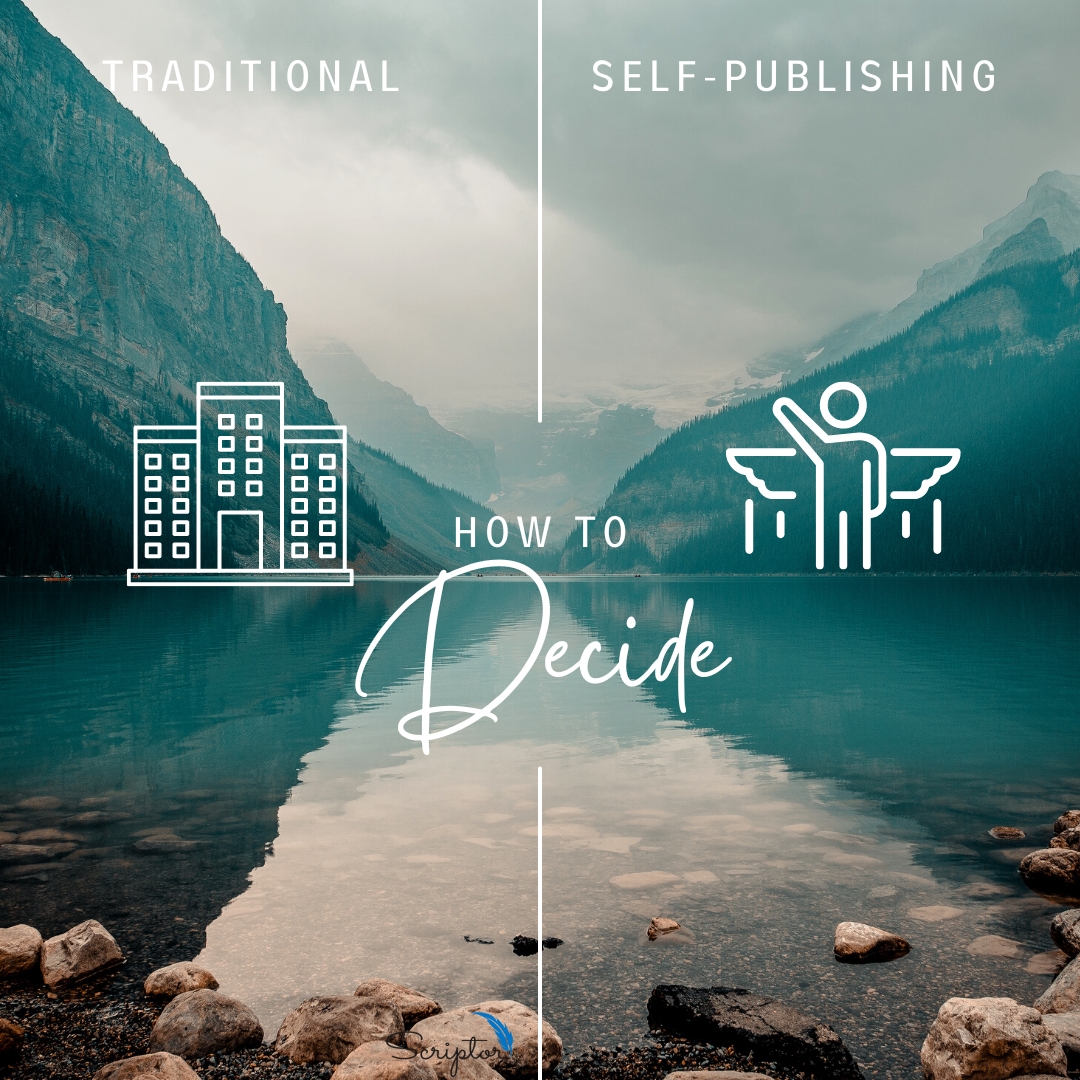Wondering How to Publish Your Book?
Not sure if the traditional or self-publishing route is better?
This is a common question for new and potential authors just entering the publishing space. Don’t worry.
We have you covered.
In this blog post we will answer:
- What is traditional publishing and how does it work?
- How is self-publishing different from traditional publishing?
- Which is better for me?
Traditional or Self-Publishing?
For almost every author reading this, the answer is self publishing. Self-publishing allows the authors to keep ownership, marketing rights, and creative control, but we will get into that in a minute. First, let’s go over how traditional publishing works and discuss its potential benefits.
Old School: Traditional Publishing
So you want to be the next Hemingway or Stephen King? We hear you. We want that for you, too. But before you start on your grand adventure in traditional publishing, you’re going to need a few things.
You need a good book idea, true, but just as crucially, you need a good agent. It is generally very difficult to score a literary agent (unless you are already famous) because they are battered with mediocre manuscripts all day, everyday. Your pride and joy is more likely to end up sorted into their junk folder than accepted, but for the sake of education let’s say you do land an agent.
Your agent then asks you to write a book proposal which is designed to convince publishers that your book will be profitable. If you choose to hire someone to do this for you, it can cost anywhere from 15k to 20k (or about half the cost of ghostwriting an entire book). Book proposals are difficult to write and are an art in themselves.
So, you wrote a good proposal, or paid someone to write it for you, and now your literary agent earns their wage. They take the proposal and shop it around to all the big publishing companies, in hopes one of them will take interest. If a publishing house does take interest, once again, you have to prove one important thing to them: that your book will SELL.
The publishing company operates on a simple logic. If your book will likely sell more than 20-30 thousand copies, it’s a yes! If they are unsure about your book, it’s a no.
As a general rule, publishers do not take risks and will only publish books from authors with a significant audience, i.e. actors, politicians, a Prince of England, etc.
Publishing the Traditional Way
If the publishing house is convinced your book will be a profitable investment, they will give you an advance. An advance is the lump sum of cash given to the author to pay them for the right to print (and own) their book. This does not have to be paid back, though your literary agent will typically take 15% of this advance.
After you get your advance, it is time to write! As you write, your publishing house will copy edit your manuscript but will likely provide little help during the writing process. Once you finish writing and deliver your product, the publisher can edit, cut, and add to it as they see fit. There is very little creative control for the author. Remember, the chief priority is sales and nothing else.
On the upside, the publisher will incur all the costs for formatting, printing, design, and distribution, and it is possible, but not guaranteed, that you will see your book in some actual bookstores. However, much of the marketing is left up to the author. This is why people with large followings are the preferred client base for traditional publishers.
When they have finished printing and put your book on the market, you will only receive 7.5% of the sale price on paperback and about double that rate for hardcover books. This is referred to as your royalty rate.
In the past, traditionally published authors earned a certain cachet in the publishing world — after all, it is difficult to get a book deal. While a Random House stamp next to your book spine looks nice, the clout of traditional publishing comes with a lot of downsides.
Benefits
- A large advance
- No distribution or publishing cost
- Prestige of traditional publishing
Drawbacks
- Lots of rejection
- Limited creative control
- No book ownership
- Limited marketing help
- Small royalty percentage
- Can take years to get published
Now that we have an idea of how Traditional Publishing works, let’s move onto self-publishing. This option is much more accessible for first time authors and allows more freedom for entrepreneurs looking to boost their business.
Self-Publishing: A Brave New World
Getting Started
Unlike traditional publishing, you do not need to hunt for a literary agent or worry about book proposals in self-publishing. You don’t need permission to publish your book. Just as with traditional publishing, there are some upsides and downsides, but the biggest advantage here is that anyone can do it!
It takes time and money to self-publish a book. If you want to save on cash, you can expect the learning curve to be steep and the publishing process will be lengthy. On the other hand, if you have money to spend, professionals can guide you through the process with as much, or as little, hand holding as you require. From book coaching all the way up to ghostwriting, authors can pay for guidance and services depending on their needs.
Self-publishing allows the author to retain full ownership, creative freedom, and substantial, if not full, royalties. The author can retain 40% to 100% of the royalties, compared to 7.5% in traditional publishing. If you are a business owner, this is especially important to remember. You may want to write a book directed toward a small but wealthy readership to boost your small business success. You can do that. Self-publishing allows you to write niche books, books about your business, or a memoir — whatever you like.
Keep in mind though, with more publishing freedom comes more responsibility. Everything is up to you, the author: the writing, editing, formatting, design, publishing, marketing, and distribution. Not to say you can’t do it, because you can. But, it does take considerable effort if you want to do it right.
Benefits
- Full ownership of book
- Accessible to everyone
- Large royalty percentages
- Total creative control
- Control of marketing
- No rejections
- Can publish your book in a months, not years
Drawbacks
- No advance
- Steep learning curve
- Quality of book is variable
This might seem like a lot, and if you are confused, that is totally natural. The publishing world is complex! But that is exactly why we created Scriptor Publishing Group. We wanted to make this process as smooth and easy as we could for aspiring authors.
If you do decide that self-publishing is the way you want to go, then Scriptor is here to help you at any stage along the way. We eliminate the steep learning curve and make sure your book is published with a very high, professional quality. From one-on-one book coaching to full-on ghost writing, we can guide you through the self-publishing process and provide you with services as you need them.
We write, coach, edit, format, design, and help with your marketing.
If you want to start a self-published book, let us be your guide!




